




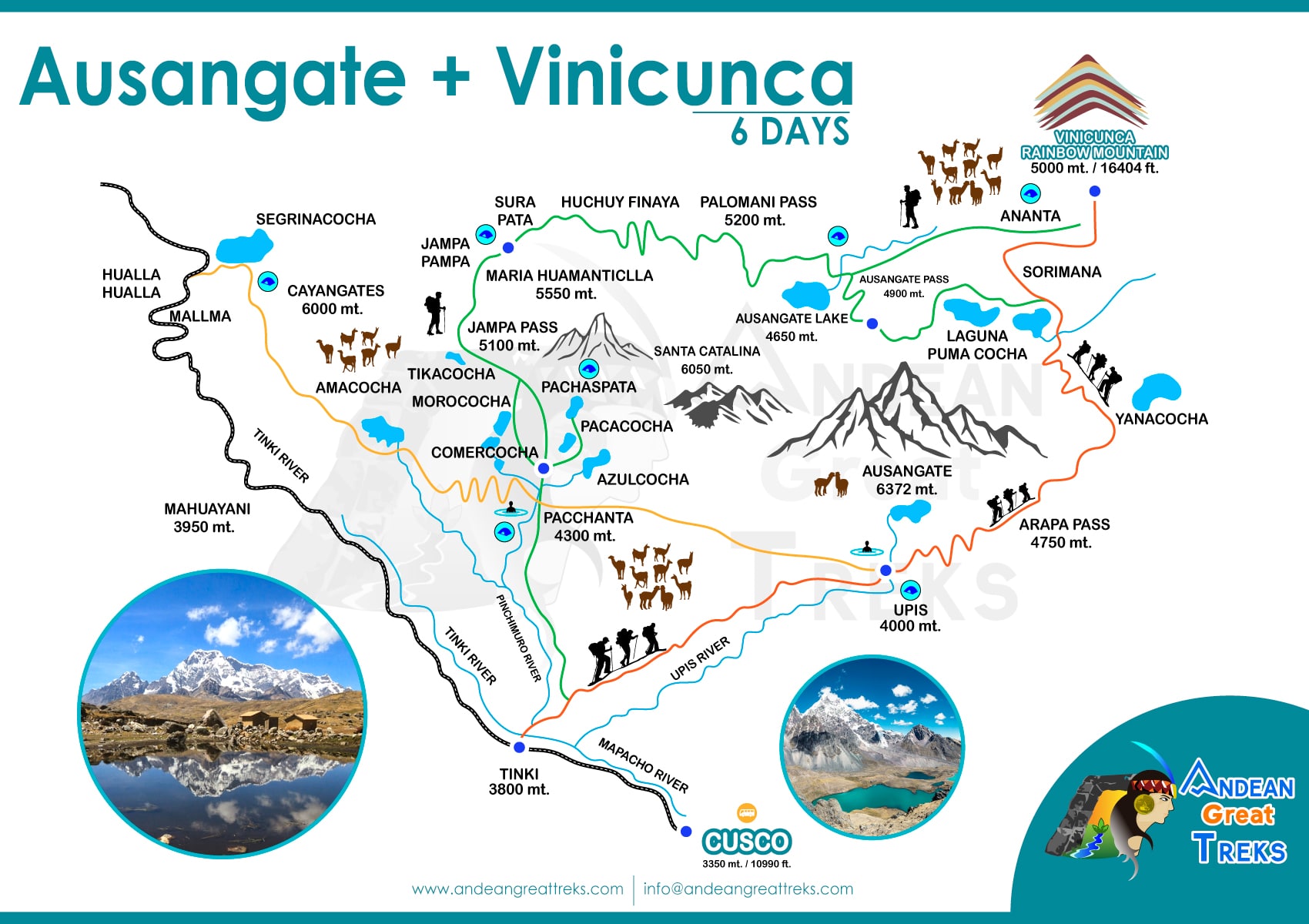 trip overview
included
Trip Highlights
activities
accommodations
itinerary
packing list
faq
essential trip information
best season to travel
price & availability
reviews
Reserve Online
trip overview
included
Trip Highlights
activities
accommodations
itinerary
packing list
faq
essential trip information
best season to travel
price & availability
reviews
Reserve Online
 CREATING AUTHENTIC TOURS IN PERU
CREATING AUTHENTIC TOURS IN PERU

To the south of Cusco, between the valleys of the Vilcanota and Tinquimayo rivers, in the districts of Ccatcca, Ocongate and Marcapata, insurge, powerful and vital, the Ausangate Trek, a gigantic massif of about 100 kilometers long decorated by a multitude of snow-capped mountains that seem to touch the sky with their perpetual snows: one of them, the apu Ausangate, the main mountain, most notable and revered in southern Peru. During the Ausangate Trek circuit you will enjoy its beautiful blue, turquoise lakes.
On the Ausangate Trek route, you can also observe the agricultural work carried out by peasants and shepherds in these mountainous hills. On our tour we can see fields of crops of all colors and flavors. In the lands of the Ausangate route, corn, tubers (potatoes, ollucos, ocas, mashuas), cereals and legumes (beans and peas) of superlative beauty are produced. It should not be forgotten, in addition, that Peru is considered one of the seven megadiverse countries on the planet due to the varied ecosystems that the Andes mountain range creates.
This trip is rated as Vigorous . Trip members need to be strong, experienced hikers in excellent physical condition. Most days are spent at high altitude (7,000′-17,000’). For the trekking portion, we will remain at elevations between 14,000′-16,986′ and sleeping as high as 15,797′. Most days we hike 5–7.5 miles with average elevation gains of 1500′ and elevation losses of up to 3000′, some of which are quite steep. Upon arrival in Peru, you should be capable of hiking up to 8 miles, averaging 2 miles per hour, without major discomfort over terrain with some steep grades for multiple days in succession. To help combat the effects of altitude, incorporate hills and stairs into your training.
High Mountain Camping Tents:
On our Ausangate trekking adventures, we use the best outdoor trekking gear. Our camping tents have the best technology to withstand the harshest climates in the Andes. They are Tents that have a capacity for three people, but are only used by 2 people. For your comfort, an inflatable mattress and additional blankets are provided to insulate you from the cold. Because it is always different to experience the true spirit of Trekking, our company maintains that idea of not using Lodges or huts as other companies do.
We’ll leave Cusco very early at 6 am and go by private van to the trailhead of our hike at the base of the majestic Mountain Ausangate, heading towards the small town of Tinqui. Upon arrival we’ll meet the horsemen who’ll prepare everything necessary to start our adventure. We’ll observe the impressive Vilcanota mountain range and pass through several traditional towns.You will hike through many remote villages with many stream crossings. We’ll walk for around 3 hours to the point where we’ll have lunch, the small town of Upis. Here our tents will already be set up. After eating, you have an option to hike to the lakes which take 2 hours, or enjoy the hot springs before our delicious dinner and a peaceful night’s rest in the middle of the mountains, you will have a chance to enjoy the first starry night, you will remember it for life.
Accommodation
Included Activities
Meals Included
Special Information
This trip visits places that are at high altitude, and as a result some people can suffer from altitude sickness, regardless of age or physical health.
You’ll enjoy a delicious and nutritious breakfast that will provide you with the necessary energy to continue our adventure. Today we’ll ascend to the Arapa Pass (4,850 masl / 15,912 fasl). From this privileged place you will be able to observe an impressive contrast in the landscape. Along the way we are going to observe local farmers and alpacas. Dunes that look like they came out of the desert surround the glacial wonder of the Apu Ausangate while, below, the valley extends with its brilliant greenness. From this point, if you’re really lucky, you’ll be able to observe the flight of the condor. Also, let yourself be astounded by the 3 beautiful and crystalline lagoons each with a particular shade: red, green, and turquoise. We’ll soon arrive at the place where our camp will already be set up. There you’ll feel how your heart vibrates in front of the huge glacier while you enjoy a nutritious dinner before bed.
Accommodation
Included Activities
Meals Included
Today is a difficult day but short, we start with Puca Qocha pass (5051), very colorful mountains which surround you. As well as we have spectacular view of mount Ausangate and colorful glacier lakes then we will enter into the Red Mountain valley, an intact landscape with vivid colors all around, and llamas eating grass right close to you, as you approach the campsite we have still wonderful view of rocky mountains and have delicious lunch and go to rest for the next big day.
Accommodation
Included Activities
Meals Included
This is the day you have been waiting for. We will wake you up at 04:45 am with coca tea delivered to your tent then we start with first uphill until Ananta pass(15,090ft-4500m-14,000feet) from where, you see this amazing Rainbow Mountain in the distance, but you are not quite there yet! From this place you go downhill to circle the lake and keep walking a Peruvian flat until we reach the final uphill to the Rainbow Mountain then we have 360 views of the spectacular landscape which surround you, Soak in the vistas and enjoy as much as possible the place. then we come back to the campsite(Ananta), have lunch there and keep walking until Ausangate lake which is our campsite.
Accommodation
Included Activities
Meals Included
Today we will get the highest point of our all hike called Palomani pass. But we will walk a short distance because yesterday was a difficult day. you pass beautiful wáter fall, colorful lakes, swampy green pampas. Today is a wonderful day for looking at wildlife such as chinchillas, Andean geese, condors, and vicuñas, we’ll have lunch while enjoying the amazing landscape. After our lunch, we will ascend 2 hours until we reach the Palomani Pass (5,100 masl / 16,732 fasl) and then we’ll go downhill to the small community of Huchuy Pinaya where our camp will already be set up. Here a comfortable night of rest awaits you after savoring the delicious dinner that our chef will have prepared with care.
Accommodation
Included Activities
Meals Included
Today is another wonderful day, we will enjoy the deep, red and green lakes. You are once in your life where you can jump in to cool off. In your left side the unparalleled Ausangate mount is still visible, today is your last day to enjoy the snow-capped mountain from a near and new angle. Our purpose is to get the hot springs of Pacchanta where we will enjoy nice and hot water and the vistas of the Ausangate Mount above. Today after our last supper we say goodbye to our horseman and the chef and get back to Cusco where you will be dropped off at your hotel around 6 pm.
Included Activities
Meals Included
When packing for your Ausangate Trek to Mountain of Colors, you should keep in mind that it is best to dress in layers due to the weather variation.
The variety of clothes that you must pack to dress in layers is key to your walk, from the morning when it is quite cold until mid afternoon when the temperatures rise and reach their peak and then freeze again at night. Stratification is also useful as you ascend high passages that are exposed to winds or descend into shady valleys.
Effective stratification only works if each layer allows moisture to pass and escape into the external environment. In fact, the best layered clothing, such as wool, promotes moisture transfer through its absorbent properties. Cotton and denim absorb moisture and, therefore, should be avoided.
 warm jackets
warm jackets
 Hydration bladder
Hydration bladder
 wool socks
wool socks
 camera
camera
 scarf
scarf
 first aid kit
first aid kit
 hiking shoes
hiking shoes
 Dry bags
Dry bags
 Trekking Poles
Trekking Poles
 sun cream
sun cream
 Snack
Snack
 sun hat
sun hat
 bathing suite
bathing suite
 rain coat
rain coat
 Sandals
Sandals
 insect repellent
insect repellent
 Passport
Passport
 Down Jackets
Down Jackets
 toilet paper
toilet paper
 daypack
daypack
 Wool cap
Wool cap
 head lamp
head lamp
 gloves
gloves
 sun glasses
sun glasses
 cap
cap
 extra cash
extra cash
 Trekking pants
Trekking pants
The AUSANGATE TREK is an adventurous route offering stunning Andean vistas, hot springs, turquoise lakes, mystical glaciers, green mossy passes and enormous snowy mountains. Along the way, you’ll catch a glimpse of interesting wildlife, like condors, chinchillas , herds of llamas, alpacasand, and wild vicuña. You’ll also come across hidden picturesque Andean villages and traditionally dressed Quechua people, richly embedded in centuries-old traditions. The highest point of the trek is 16,800 feet above sea level and the highest campsite elevation is at 15,255 feet.
A voyage to Ausangate mountain is one of natural beauty, living history and ancient spirituality. Considered challenging, this trek is recommended for seasoned hikers only, who have experience hiking at high elevations. Ausangate is actually the 5th tallest mountain in Peru, standing at 20,945 feet above sea level
In this part Andean Great Treks has tried to answer the most frequent questions that our travelers have asked us about the Ausangate trek, if you do not find any question, let us know through our mail so that we can help you with pleasure.
The Ausangate Mountain is a natural attraction that is located in the district of Ocongate, within the province of Quispicanchi, in the department of Cusco. That snow-capped mountain is part of the Cordillera de Vilcanota and, according to an ancient legend, it was the brother of the Salkantay snow-capped mountain.
The Ausangate Mountain, has a height of 6,384 meters above sea level; and is considered an apu, or protective deity of the peoples that surround it; as well as the most representative mountain in the region. Its size is such that it can be appreciated even if one is in the Sacsayhuamán Fortress, not in vain is it considered the fifth highest mountain found in Peru.
This beautiful snow-capped Cusco impresses the eye, due to its incredible natural formations; In it, there are not only beautiful water mirrors such as the Sivinicocha, with turquoise waters, but also stone forests, glaciers and high plains that seem to make this natural attraction a paradise on earth, especially for those tourists who are interested. for adventure sports since the geographical features of Ausangate make it ideal for practicing sports such as rock climbing, ice climbing, trekking, among other activities.
The Ausangate Mountain appears before our eyes as a mountain challenge; It is known that the first attempts to ascend it occurred in the early fifties of the last century, there were two frustrated first attempts to conquer the top of the mighty Apu, it was not until 1953, when a German expedition achieved the goal, climbing the mountain on its southern slope, in posterity, new routes were opened for the conquest of the Apu, however, only in 1983, thirty years after the first ascent, Peruvian feet crowned the top of the majestic snow-capped mountain.
At present, different companies have been promoting the Ausangate route as a trekking route, one of its purposes is that the expeditionists manage to surround the snow-capped mountain, although to date, few seasoned visitors have dared to follow it. Those who are interested in climbing this snowy mountain must know that they must have had enough time to practice before, since the Apu is not a snowy peak for beginners; so if you are an intermediate level mountaineer, it is recommended that you go in the company of a larger group of people experienced in the field.
In order to reach this beautiful mountain, it is necessary, if one is in the city of Cusco, to go to Urcos, this first trip can be done by bus, and the duration of the journey to the place is one hour. Once in Urcos, continue to Ocongate and from here to Tinke, also by bus, spending three more hours on the way. Already in Tinke you have to pay for the right of entry, this has an approximate cost of ten soles, quite apart from the services of tour guides that are hired.
The Inca tradition tells that Salkantay and Ausangate were two brothers who lived in Cusco. After a terrible time of drought, both ventured into strange lands to save the town from the crisis. Salkantay went north and found the jungle, and there, Veronica’s forbidden love; instead, Ausangate went south, to the highlands, and there he found a large amount of Andean food, such as camelid meat, corn, and potatoes, which he sent to the population.
The Chillca community, made up mostly of llama and alpaca farmers and herders, is known as the guardian of these beautiful landscapes. Every year on the slopes of the mountain the Qoyllur Ritti festival -“star snow” in Quechua- is celebrated before the Corpus Christi festival, during which thousands of people make a pilgrimage to the Sinakara temple where the painting of the Crucified Christ engraved on a rock. This pilgrimage has been named Intangible Cultural Heritage of Humanity in 2004.
The Apu Ausangate is the fifth highest mountain in Peru at 6,384m, and is the highest of the 6 peaks that exceed 6,000m located in the Cordillera del Vilcanota in the Cusco region. The first ascent was made in 1953 and was led by the famous Austrian climber Heinrich Harrer, part of his first group conquered the north face of the Eiger, which was the story and script for the book/film “Seven Years in Tibet” (The renowned actor Brad Pitt was the protagonist of this film).
Ausangate is the most famous and well-known snow-capped peak in Cusco, the normal route to reach its summit is not very technical and difficult, but a lot of resistance and strength are needed to break the path with loose or accumulated snow to the summit stalls. Ausangate is the main Apu in Cusco and can be seen from many places in the city. It is rarely visited by tourists in this part of the region but is becoming popular as a destination to do the Circuit Trek around the snow capped in the dry season.
The altitude is insane. I’ll mention again that this trek never drops below 14,000 feet! Many of the passes are grueling and tower over 16,000 feet. The mountains are Apus, or Gods, to the Indigenous, so go in with the mindset of respecting them in this regard. By the way, the mighty mountain of Ausangate is a staggering 20,945 feet (6,384 m).
Ausangate is surrounded by extensive and luminous turquoise lakes such as Sibinacocha, as well as stone forests, glaciers and vast plains that impress with their magical landscape. Reaching the top of Ausangate involves a journey of 5 days and 4 nights along 70 km, which is why it is considered one of the most challenging trekking routes in the Andes. However, during the walk, the traveler witnesses incredible postcards: multicolored mountains, herds of alpacas and desert cliffs that together create an incredibly beautiful outdoor experience from start to finish.
The landscape is stunning. The imposing chain of mountains of the Cordillera de Vilcanota with its snow-covered peaks takes the breath away from those who dare to explore it.
There are more than 400 glaciers that extend between the Cusco and Puno regions. One of them is Ausangate, the guardian mountain of Cusco that gave its name to the regional conservation area created in December 2019, over an area of 66,514 hectares distributed between the provinces of Quispicanchi and Canchis, in the department of Cusco
Ausangate is not like some other high-altitude treks e.g. Everest Base Camp trek or Annapurna Circuit that start at lower elevations and gradually gain altitude. The entire route of the Ausangate trek goes over 4000m. Good acclimatization is the key here.
Altitude sickness, or Acute Mountain Sickness (AMS), is a health effect that can arise at high elevations. Minor symptoms include headache, fatigue, difficulty sleeping and dizziness. More progressed cases can result in vomiting, shortness of breath and high altitude cerebral edema, which is associated with lethargy, nausea and disorientation.
Altitude sickness occurs in 20 percent of people at 8,000 feet and 40 percent of people at 10,000 feet. For a hike like the Ausangate trek, it is highly likely that you will experience some form of altitude sickness, as elevations reach as high as 16,800 ft. For this reason, it is important to acclimate properly, take your time on the trail and take measures to combat symptoms.
The possibility of experiencing altitude sickness is one of the most common concerns for visitors to Rainbow Mountain. Altitude sickness is caused by a lack of oxygen at higher altitudes and can set in at altitudes above 2,500 meters (8,000 feet) above sea level, putting Rainbow Mountain’s altitude of 5,200 meters (17,060 feet) well above the minimum elevation where it can occur.
Many people arriving in Cusco by bus from Lima or the Amazon get altitude sickness. It is normal if you fly or go by bus from a low altitude to a location more than 3000m above it. Our body needs time to adjust to the decreasing amount of oxygen available due to the altitude, the higher you go the lower the air pressure and the less oxygen available to you.
Symptoms
There are three types of altitude sickness; Mild Altitude Sickness, HAPE and HACE – the last two are lethal. The Mild Sickness is the first stage that if you don’t take precautions, it can develop into one of the lethal types. Having Mild Altitude Sickness is similar to having a hangover; headache, nausea, fatigue. Many people feel it for the first couple of days in Cusco.
How to prevent
As a foreground, the point from where this excursion will start is Cusco, which is located at an altitude of 3500 masl.
It is there where you will have to acclimatize before starting the Ausangate Trek, together with your friends and all the crew that will accompany you.
The first day you will start a trek from the towns of Pacchanta (3980 masl) towards the mythical mountains of Ausangate, so base camps are usually located at an average height of 4120 to 4350 masl.
On a normal day in the Ausangate Trek circuit you gain height from 800 to 1000 meters per day. The highest steps exceed 5,000 masl. With all this data, it is considered that the Ausangate route is to be well prepared and adapted to the climates and challenges of the Andes.
Like most trek in the region, the best time to do the Ausangate trek is in the dry months between May and September. Unlike other popular treks, the Ausangate trek is very quiet, even in peak season.
In the shoulder months of April and October weather is still pleasant and the trek is very possible. However, because of its altitude you’ll have to contend with freezing nights, even in the dry season. Because of the altitude and snow, the trek is best avoided in the wetter colder season between November and February.
Temperatures during the day in the dry months are usually quite mild and visibility is very high. Because of the height you’ll want to make sure you are wearing layers, especially for the colder nights.
Because of its high altitude and frigid air, rainy season in the region often translates to snowfall for Rainbow Mountain. Visitors to Ausangate Trek and Rainbow Mountain should come prepared with clothes for all weather, as conditions can also change quickly. For more information about when to visit, make sure to check out our blog on the best time to visit Peru.
The weather at Ausangate Trek and Rainbow Mountain is very unpredictable, changing frequently and quickly. You might see warm weather and sunny skies one minute and then cloudy skies and snowfall the next. The best idea is to make sure you’re prepared for all weather by dressing in layers.
In the Vilcanota Range, there is a dry season and a wet season. The dry season is between May and September, and is considered the best time to hike in the Andes. Keep in mind, however, that the dry season, containing Peru’s winter months, is also the colder time of year. The coldest months are May through July. Expect the days to be cool, no warmer than 40 degrees F, and the nights to drop to freezing temperatures as low as 10 degrees F.
The rainy season is between October and April. While the rainy season is warmer, it can still be cool at night. In fact, there can be heavy snow as well given the elevation. The rain and snow can cause muddy conditions on the trail and even partial closures. It is especially inclimate between January-March, with February bringing the most precipitation. The shoulder months of October and April bring more moderate weather with mixed rainy and dry days.
Dry Season – June to August
Should Season – April to May & September to October
Rainy Season – November to March
Nighttime: 39℉ (4℃)
The Ausangate Trek traces through high elevation landscapes ranging between 10,334 ft to as high as 16,800 ft above sea level. The land surrounding the mountain features Andean uplift, glacial valleys with hanging glaciers, Permian formations and cretaceous limestone forests. The trail takes hikers through landscapes bursting with glaciers, snow capped mountains, thermal lakes, high flatlands and lush green valleys.
Peru is famous for being home to many exhilarating treks. Though not as popular as some of the other trails accessible from Cusco, the Ausangate trek is just as worthwhile. In fact, being less crowded with tourists is part of its charm. It guarantees travelers who venture on this remote journey a more unique experience. While you won’t come across Incan ruins, it makes up for it with breathtaking natural scenery and spiritual significance. Spot spectacular snow-capped peaks, gorgeous lakes, and wonderful wildlife, including herds of llamas and alpacas. The centerpiece of the trek is the mighty Apu Ausangate, one of the tallest mountains in Peru.
The Ausangate Trek is a high altitude 70km hike in the Peruvian mountains near Cusco with an average altitude of over 4000m. Unlike most other hikes in the region Ausangate is not about Inca ruins, it’s all about beautiful scenery; snow peaks, glaciers, colorful mountain lakes, and the Rainbow mountain. If you like beautiful nature, going off the beaten track and hiking this trek is for you.
Ausangate is one of the most challenging hikes around Cusco but at the same time one of the most rewarding in sense of scenery. If you have any doubts about hiking Ausangate on your own read this article we hope it’ll help you decide whether to do an independent or guided trek. For more info on all our favorite hikes in Peru.
Basic Information
There are circuits from 3 to 7 days, which have different starting and ending points. It is advisable to do each circuit with a certified and highly experienced tour operator. The Ausangate Trek is a challenging high altitude trek through 70 km of the Cordillera Vilcanota mountain range and features some of Peru’s most extraordinary scenery. Ausangate is an off-the-beaten track hiking alternative with minimal foot traffic that allows you to carve into the mystical side of an ancient Andean world.
A voyage to Ausangate mountain is one of natural beauty, living history and ancient spirituality. Considered challenging, this trek is recommended for seasoned hikers only, who have experience hiking at high elevations. The route takes you through the Cordillera Vilcanota, or the Vilcanota Mountain Range. Ausangate is actually the 5th tallest mountain in Peru, standing at 20,945 feet above sea level.
Through the Ausangate trek, you’ll ascend and descend through the mountain range, finding sweeping Andean vistas, thermal lakes, mystical glaciers, green mossy passes and enormous snowy mountains. Along the way, you’ll catch a glimpse of interesting wildlife, like condors, chinchillas and groups of vicunas. You’ll also come across hidden Andean villages richly embedded in centuries-old traditions. The highest point of the trek is 16,800 feet above sea level and the highest campsite elevation is at 15,255 feet.
The Ausangate trek is considered strenuous, with a few moderate days sprinkled in. The trek is classified as Grade C in difficulty, which implies altitudes between 14,800 to 16,400 ft (4500-5000 m) and 6-7 hours of hiking per day. Many of the days have steep sections that cause rapid altitude gain in a short time. Anyone with a good level of fitness can manage this hike, but it is recommended that trekkers have experience with multi-day hikes at high elevations.
Another factor to consider, aside from the steep sections and 16,000 ft+ elevation passes, is the weather. The weather can be quite unpredictable, and blizzard conditions at the higher altitudes are not uncommon. It is important to factor the low temperatures and your tolerance to cold and snow when determining your suitability for this trail.
We have different distances from the ausangate trek, the shortest is 15 km = 9.3 miles. And the longest 6-day trek has more than 70 km = 43 miles.
The classic 4-day Ausangate Trek tour is 36 km approx. = 22.3 miles
Andean Great Treks is proud to have the best staff of chefs specialized in high mountains, with more than 15 years of experience, in the different trekking routes in Cusco. On our Ausangate route we provide you with the best food service every day, our chefs will prepare meals with 100% fresh and organic foods, since our company is focused on community work and support for farmers who provide us with their best fruits. You can taste the best Peruvian and Cusquenian cuisine, during the breakfast we will have pancakes, omelettes, coffee, milk,butter, cereals, and very nutritious breakfast of Cusco based on oatmeal, quinoa, wheat, etc.
Lunches and dinners are served buffet style, such as sauteed loin, quinoa chaufa, salads, vegetable soups and products from the Andes, chicken, steak, alpaca.
If you are allergic to any type of food or do not consume gluten, or are vegetarian, it is no difficulty for us as we are trained to provide food under these food standards.
In general, Andean Great Treks handles an order and quality in the handling of the products, taking care of their safety so that no illness or discomfort happens during the days of hiking on the Ausangate mountain.
Andean Great Treks has professional, knowledgeable, dependable and experienced guides, who all are well trained for us every year. All of our guides have spent years exploring the mountains and studied in Universities and Institutes of Cusco. All guides speak fluent English and have a great knowledge of the various trekking routes. Our Guides will have the pleasure of guiding you in the most beautiful trails in the Ausangate Trek, Inca Trail, Lares Trek, which will enhance your holiday experience and make it a real success. Our guides are trained in first aid and know how to do in any emergency situation. And most importantly our guides are very friendly and enjoyable and want to share with you the faith of Peru.
Because it is one of the most demanding trekking routes in terms of physical and mental levels, we recommend doing this activity only for young people between 15 and 55 years of age.
Since they are the ones who can manage with great skill in these difficult routes of the Andes of Peru.
Although there were people up to 60 years old who were able to complete this fabulous route of the Ausangate Trek. Always before embarking on a trekking adventure anywhere in the world, we advise you to consult your doctor.
Another compelling aspect of the Ausangate trek is that you can conveniently arrange to do Rainbow Mountain as a side excursion. Rainbow Mountain, or Montaña de Siete Colores, is a very popular destination. Here you can see these iconic mountains with rich mineralization bringing red, orange and yellow hues across a seemingly endless mountain expanse. It’s truly a sight to behold.
This part of the trek would bring you to a soaring 17,060 feet above sea level. This portion also tends to be, by far, the busiest part of an otherwise remote journey. It is important to keep in mind the crowds and higher elevation (higher than any other point on the classic Ausangate) to decide if you’d like to add this portion to your Ausantage hike. Talk to a travel advisor for more information.
The best day trekking tour Rainbow Mountain Trek was opened in 2015. It is a very popular tourist destination in the city of Cusco, you will undoubtedly enjoy the wonderful hill of colors. The Apu Ausangate is very close to the 5th highest snowfall in Peru, to see this attraction it is good to acclimatize at least one day, because it rises to 5200 meters high. On the road you can see llamas, alpacas, vicuñas. Native peoples who speak Quechua.
This wonderful place is located in the Andes of Peru, in the department of Cusco province of Canchis. At the moment the route to take is by Cusipata and the walk begins by the community Fulawasipata.
The maximum height is 5,200 m.a.s.l. an area of considerable elevation, it is located on the way to the imposing snow of Ausangate.
Why you will have the opportunity to enjoy an exciting day observing high Andean landscapes appreciating the beauty of the Mountain of Colors, it is currently considered the second most visited place after Machu Picchu.
In the dry season months from April to November, the days are mostly sunny and with a radiant blue sky. Take into account that some days of June and July may show cloudy days because it is cold season.
In the months of December to March as it is a rainy season some days are cloudy and rainy and you cannot see the colors of the Mountain of Colors because it is covered with snow.
The distance you walk to get to Vinicunca or Rainbow Mountain Trek is 1 hour 50 minutes, you must take into account that the time is relative because if you walk fast you can do it in less time and if you walk slow it will take more time determined.
The geological formation of the mountain of the 7 colors, caused many of us an interrogation, perhaps without an answer at that moment, today we will inform you about the geological formation of this natural wonder. The formation of the rainbow appearance of the Vinicunca is due to the marine, lacustrine and fluvial sediments transported by the water that previously covered the area. These sediments date from between the Tertiary and Quaternary periods, approximately 65 million years ago.
The formation of a mountain is due to the alterations of the terrestrial layer and the movement of the tectonic plates, in these alterations the environment, the climate and other external factors have a lot to do. Have you ever wondered why mountains are conical in shape? The conical shape of the mountains is because ice usually forms on the top of the mountain.
Over time, these sediments formed layers, which are today the famous colored layers. The movement of the tectonic plates in the area raised the colorful sediments that became great mountains. After this, the mountains acquired their striking colors due to the oxidation and erosion of minerals in the soil.
Then, due to climate change, it causes it to thaw and this causes the mountains to drain and these generate streams of water that run towards the lower area until they run into rivers or lagoons until they mix with the ocean depending on climatological factors and because of From this process the mountain wears down and takes its cone shape.
There is no doubt that the mountains are a masterpiece of nature, from the top of a mountain we can appreciate everything that surrounds us and enjoy it.
The rainbow aspect of Vinicunca is due to “a complex geological history of marine, lacustrine and fluvial sediments,” according to a report by the Cultural Landscape Office of the Decentralized Directorate of Culture of Cusco.
These sediments, transported by the water that previously covered the area, date from between the Tertiary and Quaternary periods, that is, from about 65 to two million years ago.
Over time, the sediments formed layers (with different grain sizes) that today are seen as the strips that attract tourists so much.
The movement of tectonic plates in the area raised these sediments until they became mountains.
Then they began to acquire their striking colors due to the oxidation of their minerals, exerted by the humidity in the area, and their erosion.
Composition of each strip according to its color:
• Pink or fuchsia: mixture of red clay, fangolitas (mud) and sand.
• Whitish: sandstone (quartz sand) and limestone.
• Purple or lavender: marl (a mixture of clay and calcium carbonate) and silicates.
• Red: argillites and clays.
• Green: clays rich in ferromagnesia (a mixture of iron and magnesium) and copper oxide.
• Yellowish brown, mustard or gold: limonites, calcareous sandstones rich in sulphide minerals (combined with sulphur).
Juan Carlos Gómez, from the Geophysical Institute of Peru (IGP), told BBC Mundo that the hill was “partially” covered with ice and that it received temporary snow until the early 1990s.
Along the same lines, Fabián Drenkhan pointed out that he does not believe that the summit has been a glacier in recent years or decades.
The residents of Pitumarca, according to Haydee Pacheco, from the municipality of this district, say that there was snow about 70 years ago.
Pacheco explains that the mountain gained popularity thanks to the promotion of tourists who walked through the place in the direction of Ausangate, a sacred mountain for the people of Cusco.
Want an in-depth insight into this trip? Essential Trip Information provides everything you need to know about this adventure and more.
View Essential Trip InformationThe best time to visit Peru is during the dry season, between May and November, when the weather is dry and bright, with more frequent rainfall occurring between November and April.
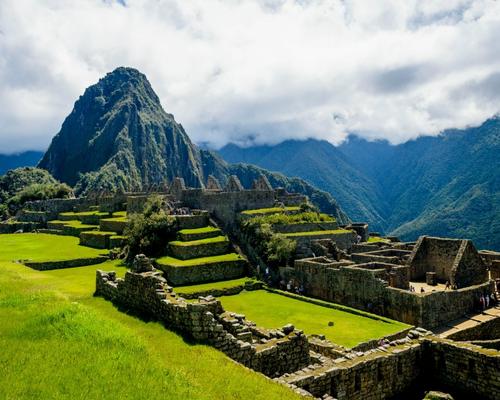 JANUARY
JANUARY
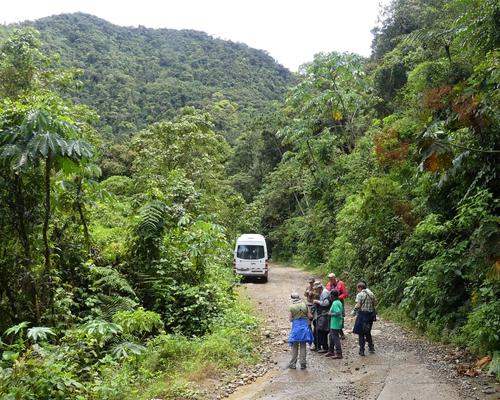 FEBUARY
FEBUARY
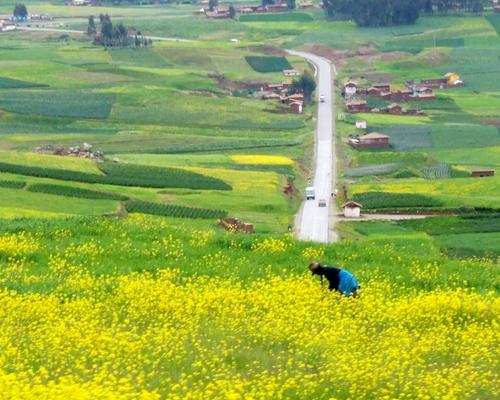 MARCH
MARCH
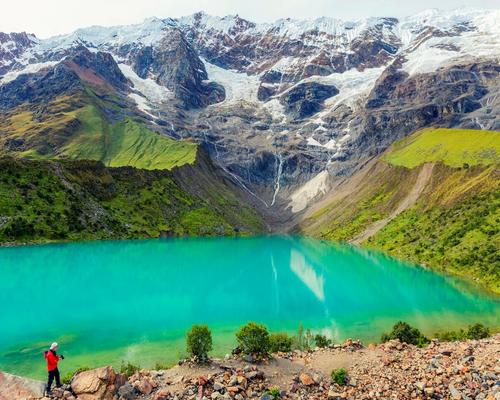 APRIL
APRIL
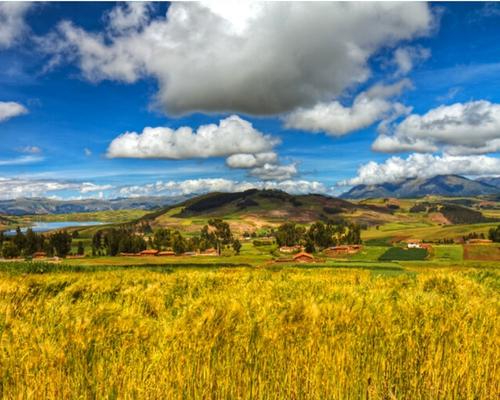 MAY
MAY
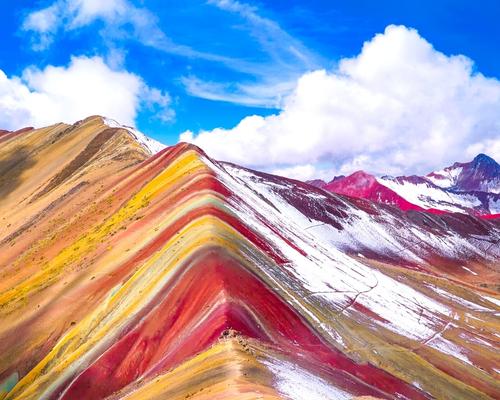 JUNE
JUNE
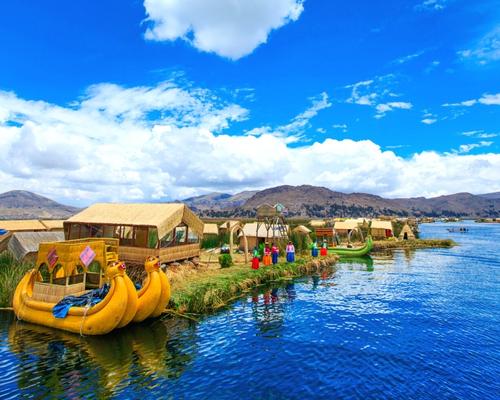 JULY
JULY
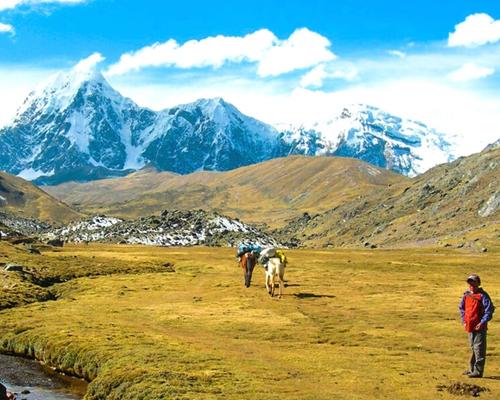 AUGUST
AUGUST
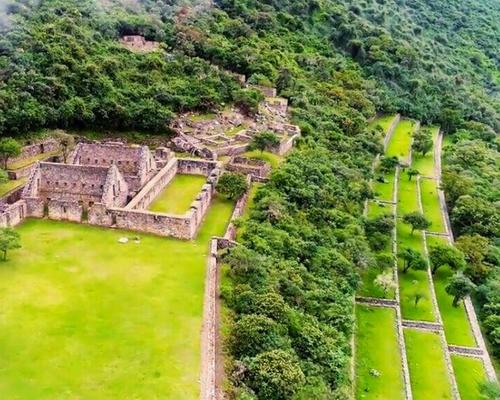 SEPTEMBER
SEPTEMBER
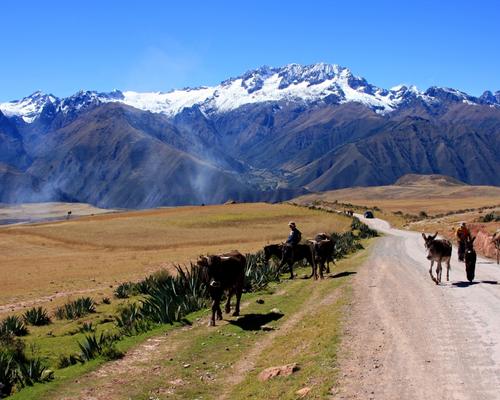 OCTOBER
OCTOBER
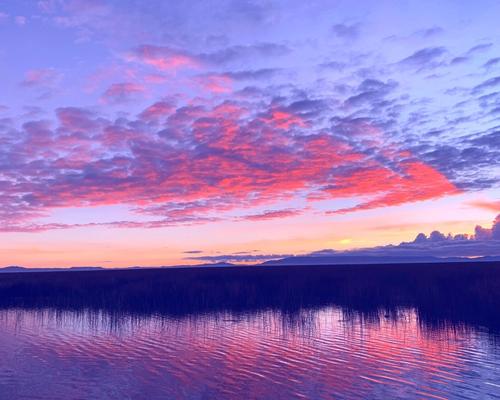 NOVEMBER
NOVEMBER
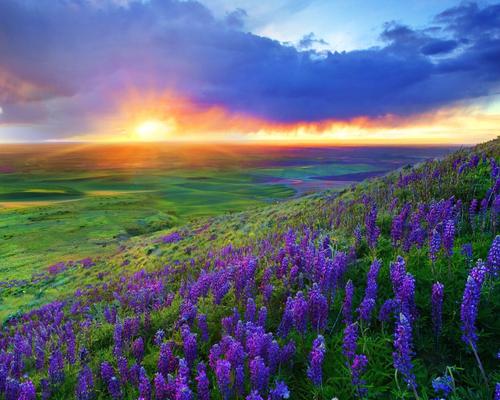 DECEMBER
DECEMBER
To book this tour, a minimum of $ 200 USD per person is required, the remaining balance will be paid upon arrival in Peru, at the Cusco office.
Any other additional information, please coordinate with your travel agent.
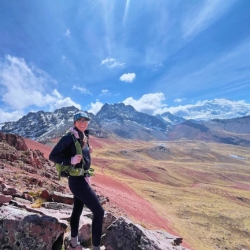
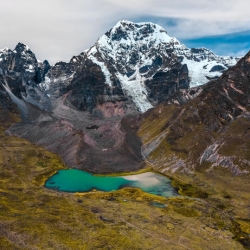
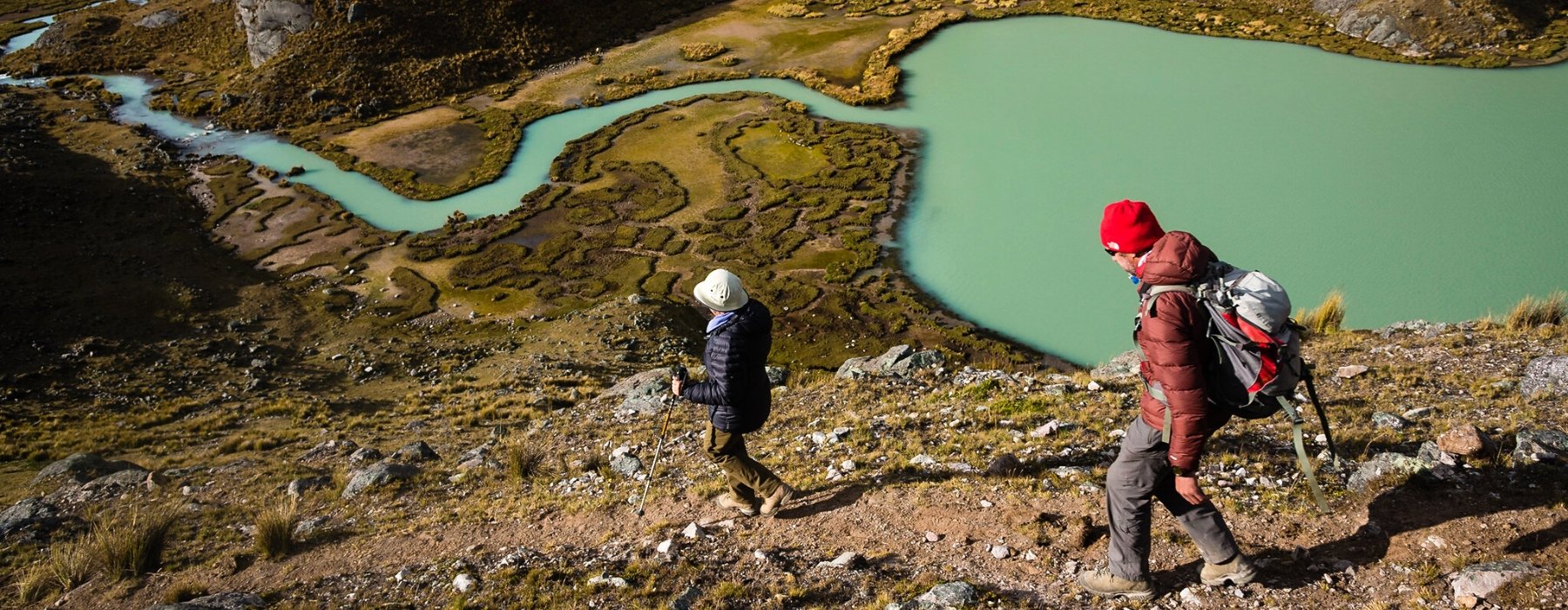
Nothing gets you closer to a country than walking through it, and we’ve got trips to suit walkers of all levels and interests.
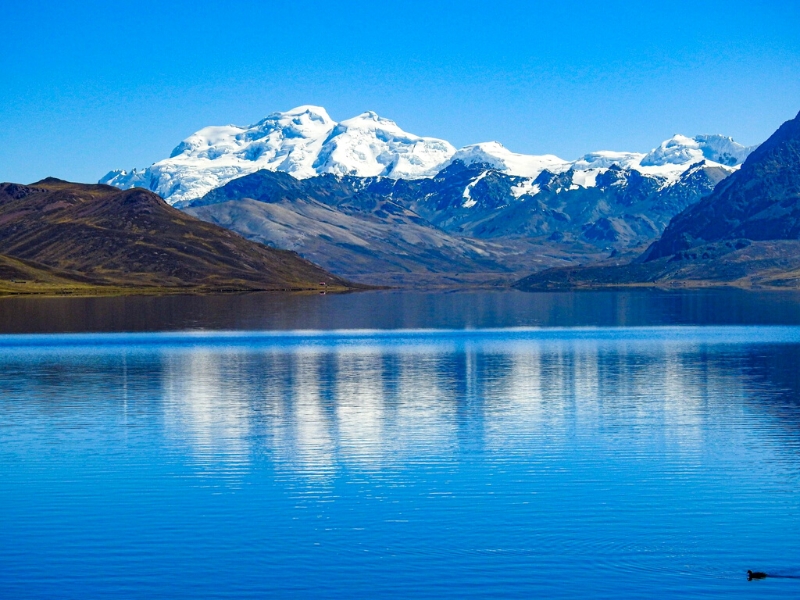
All our Walking trips are graded from ‘Easy’ through to ‘Challenging to Tough’. On our online trip itineraries you’ll find a chart showing the daily walk distances, timings and information on the route including the terrain, altitude. Generally, no specific training is needed but you might feel more comfortable if you’ve got out walking a few times in the lead-up to your trip.
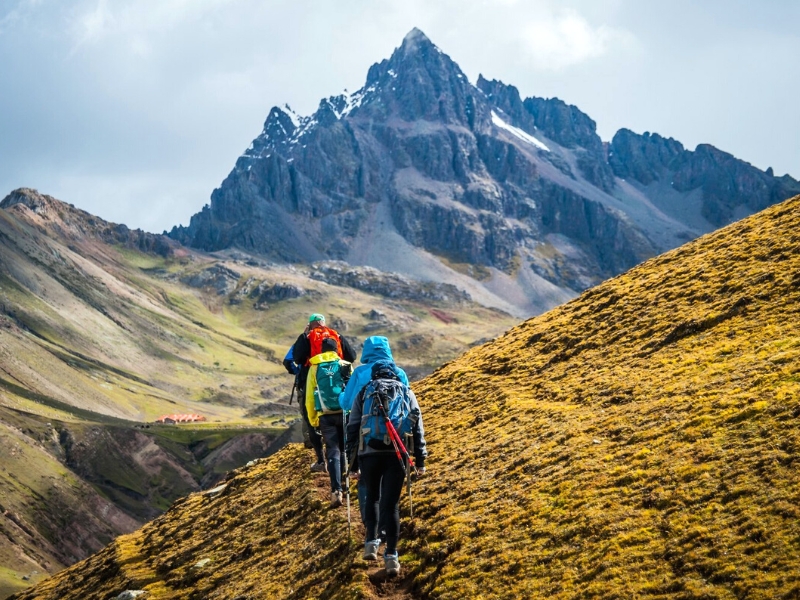
As with all our trips, every group is different but the ‘average’ group consists of roughly half couples and half solo travellers – all sharing a passion for exploring the world on foot. You’ll always have someone to keep you company along the route, but you don’t always have to walk together. Wherever possible your Andean Great Treks leader will allow everyone to walk at their own pace, regrouping regularly along the route.
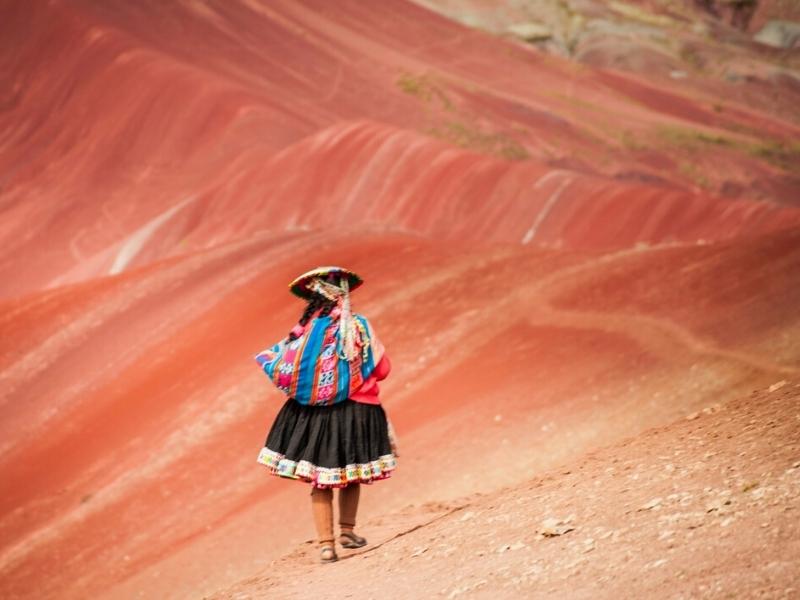
Mostly of our hikes in the mountains in Peru and Cusco like the classic Inca Trail to Machu Picchu, Ausangate Trek, Lares Trek, Ancascocha Trek, Salkantay Trek , involves an average of walking hours of 7-8 hours per day, this timing includes stops for taking photos, lunch, breaks for recovery the energy, and the most important we adapt to your walking pace. This relaxed style of trip involves to know all the attractions in greater depth.
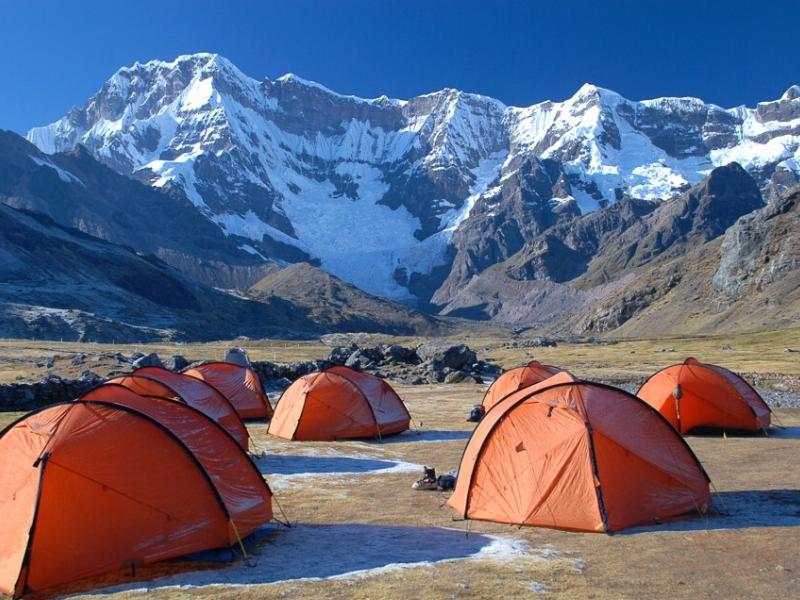
On nearly all our Walking trips, porters or mules will carry all the camping equimpent, so your main luggage will be transported for you. We recommend walk with a light rucksack, you will carry water, snacks, a camera, a small first aid kit and any extra clothing or sun protection. On more remote or challenging treks, additional guides are there to assist the leader tour guide and provide support to the group.
The acclimatization period is very important for our travelers to enjoy the experience. We suggest a minimum of 3 or 4 days of the previous stay in Cusco city, the Sacred Valley of the Incas or Machu Picchu. We recommend you check the acclimation programs we have prepared for you on our website.
The average height of our camps in the trekking circuits is 3,500 masl. In fact, one of the circuits where you sleep at the highest altitude is the Ausangate Trek, where you will have days to set up the tents at a height of 4,300 meters. Remember that Peru has snowy peaks that reach up to 6,700 masl.
From 3,000 meters above sea level, the symptoms of “altitude sickness” vary according to each person, and may even not occur. However, among the most common are a headache, dizziness, nausea, loss of appetite and insomnia. Therefore, upon arriving in the city of Cusco, located at 3,400 meters above sea level, we recommend our travelers to take a good rest, drink plenty of water, eat light meals and take slower walking. Also, it is necessary to avoid alcoholic beverages and cigarettes. The symptoms can be alleviated with high mountain medicines such as DIAMOX or similar products, but we suggest you consult with your doctor before the trip.
While on the trail, hikers will need to carry a daypack (camera equipment, water bottle, extra layers, rain gear, and other accessories you might need on the trail.) Horses and llamas will carry your duffle bag to the next camping site.
The company makes the greatest efforts to provide a safe and unforgettable experience, for this reason, the trekking guides are constantly communicated with the central office through satellite phones, ensuring the welfare of each passenger. Our guides are trained in rescue techniques and first aid in emergency outdoor, these courses are developed annually and have the standards of the wilderness first respond. At all times we have oxygen and first aid equipment. In case of any eventuality a medical director will answer our questions 24 hours a day. In addition to the animals who carry the luggage we have horses to help walkers tired or eager to ride. We recommend getting a travel insurance.
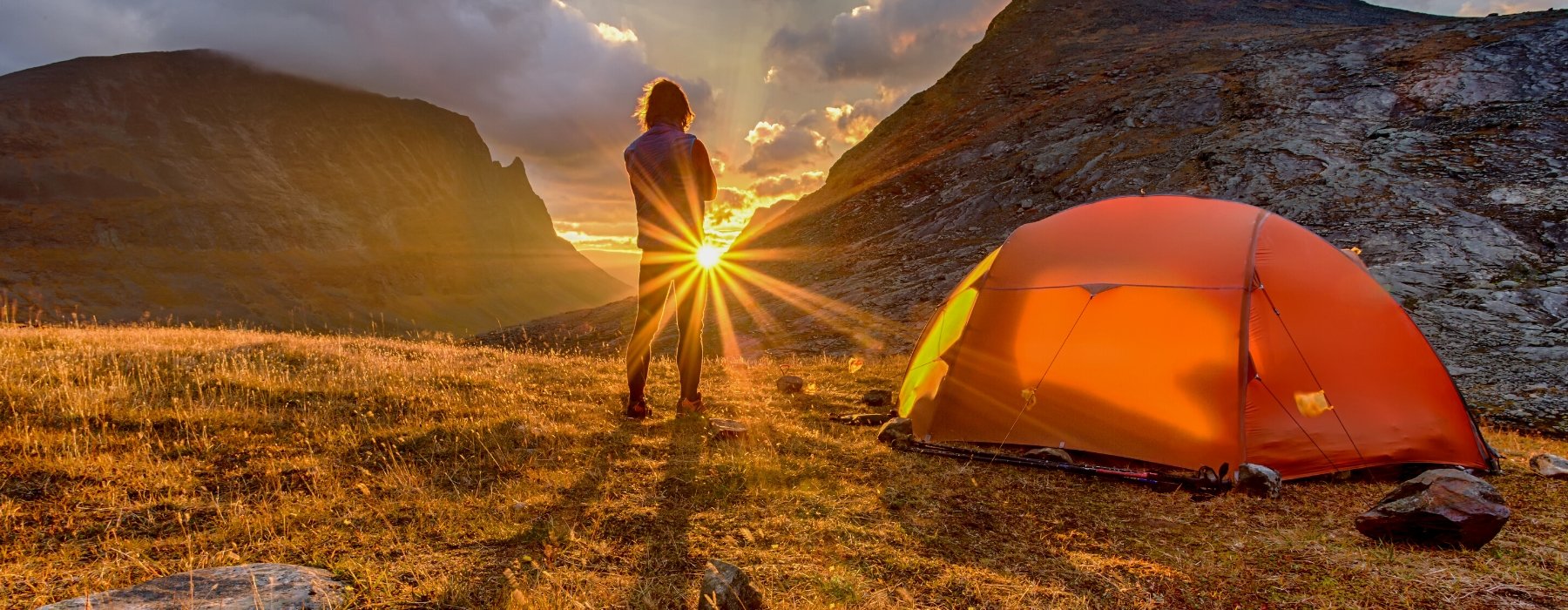
Every Andean Great Treks holiday has been thoughtfully planned and crafted by our specialists. They draw on their own extensive travel experience and the guidance and expertise of our local partners to create superb holidays. Our specialists are committed to making every aspect smooth and enjoyable; they genuinely want to ensure that the holidays they create leave you with wonderful lasting memories.
Every Andean Great Treks traveller is accompanied by an experienced tour guide, you will be immersed in Historic cities, ancient ruins and unfamiliar landscapes are all brought to life by our carefully selected local guides. They want to share their expertise and help you make your own discoveries too; their sole mission is to ensure you enjoy every moment.
Giving you the freedom to make your holiday even more memorable. We know how much our customers look forward to their holiday and we pride ourselves on the choice and flexibility that we offer to enhance every aspect of your experience. Whether it’s getting to the airport, upgrading your room or booking an additional excursion, we can help.
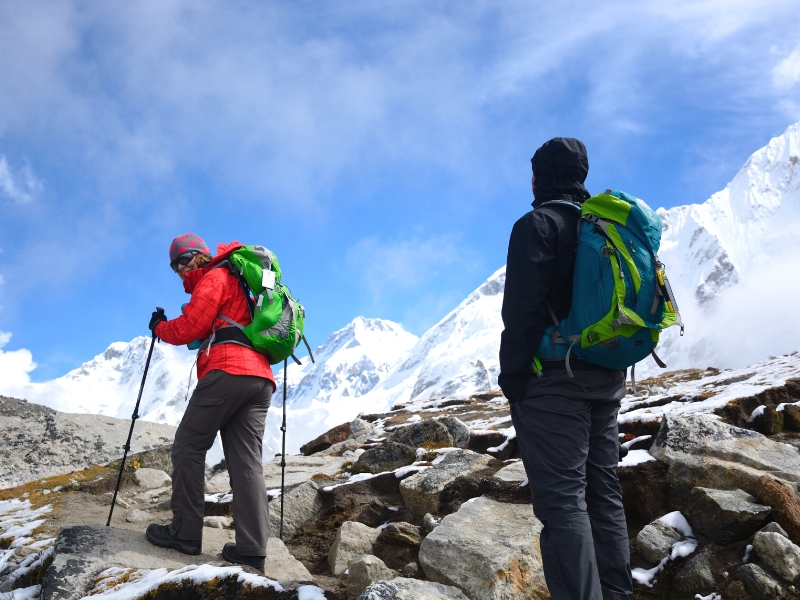
Our guides are the stars of the show; it is their unrivalled knowledge, passion and expertise that will transform your tour experience from good to truly extraordinary!
Because the have grown up in the area and know it like the back of their hand, so they can help you experience whichever aspects most interest you. They’re passionate about sharing their corner of the world with you, and as you explore together, they’ll open your eyes to the intricate details, provide background to enhance your understanding of what you’re seeing, and share stories that will bring everything to life.
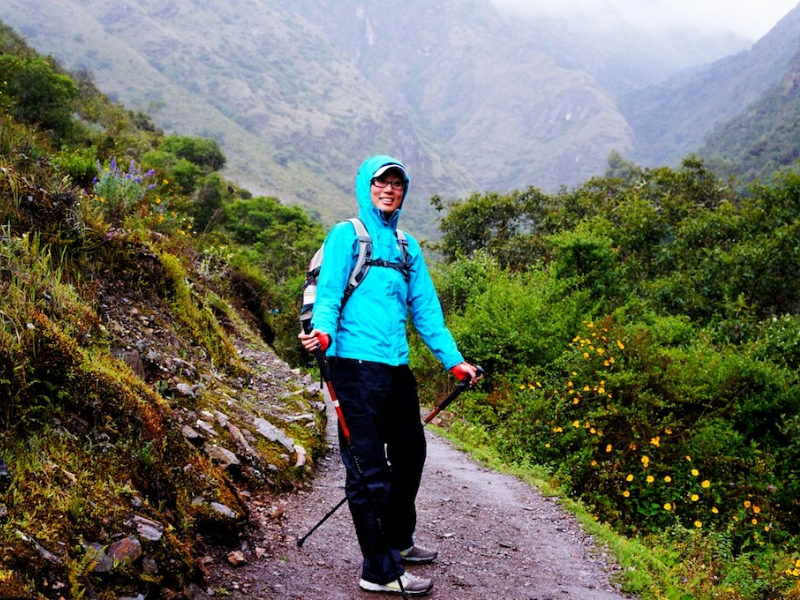
“Your inspiration for a trip can be a single word or a highly evolved outline, but it’s the conversations we have that help us understand the experience you’re looking for. Meanwhile, I’m looking back on the time I spent at the destination.
‘The great thing about working with a specialist at Andean Great Treks is how they take your complete jumble of ideas and turn them into something absolutely spectacular.’
As you begin to share your ideas with your specialist, it will connect them immediately back to a time in their own travels. Conjuring a picture of the rest time they made that same discovery, reminding them how it felt.
Your specialist understands that, when the journey is right, it has the power to excite your emotions in the most profound ways after all, that was the effect on them.
They carry a treasure box of moments, captured over many journeys, into every suggestion they’ll share with you, as they ask you how you want to feel on your trip.
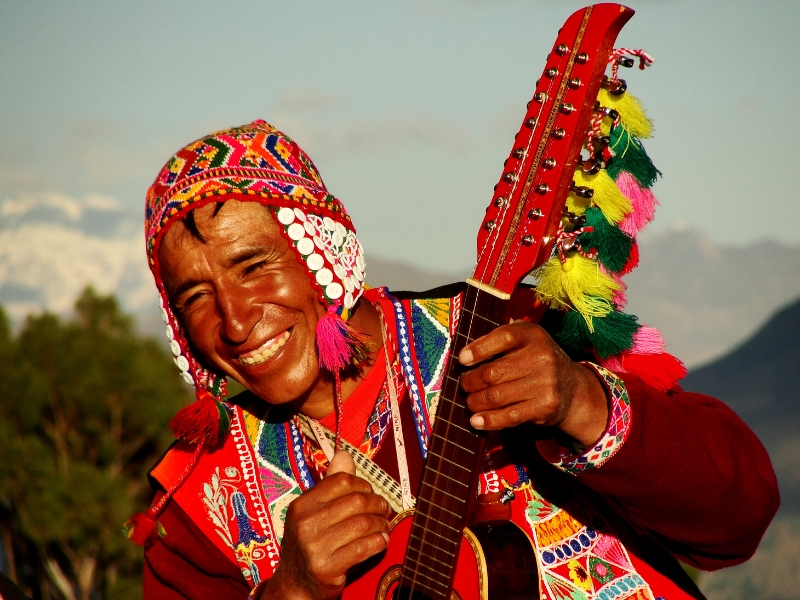
EXPERIENCES THAT CALL TO YOU
It’s what you do in a destination that helps bring it to life. It’s why we strive to choose experiences that help you connect to a place, absorbing a little of its complex character. Wherever your passions lie, we’ll recommend experiences that speak to you, and we’ll recommend the guide or local expert who’s most qualified to help you explore. Packing your holiday full of special experiences means some early starts and long days, but you can be sure that you’ll return home with many incredible memories! Read our Tours and check the Physical Ratings to see if the pace and activity levels are right for you.
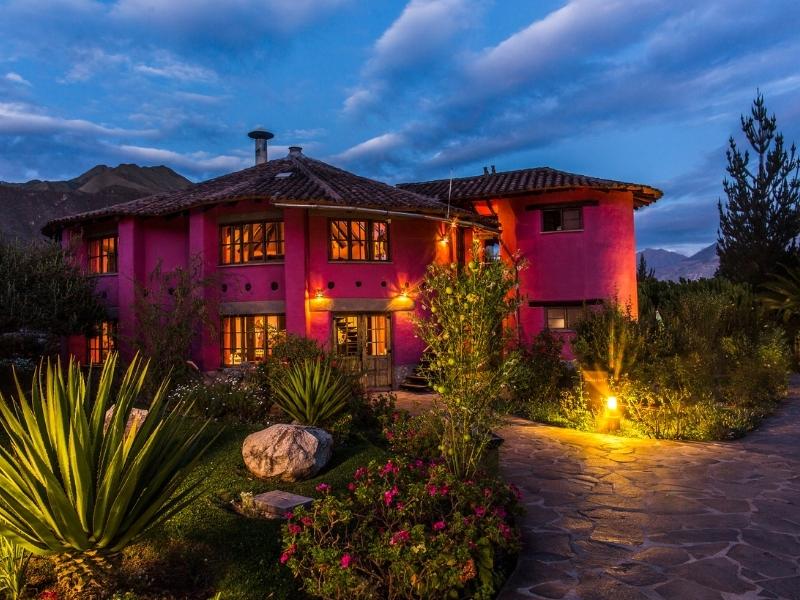
STAYS WITH DIFFERENCE
We know that where you stay is a cherished part of your travels. So, we go to great lengths to find places to stay that exceed expectations, or go above and beyond the ordinary, whether in their character, hospitality, or location. Over the years, we’ve discovered the very best properties, trying and testing them, so we can choose the right one for you. We’ve nourished long-standing relationships with these establishments and the people who founded them, and we’ve stayed there many times often, we’ll even know which rooms have the best views (and reserve them for you).
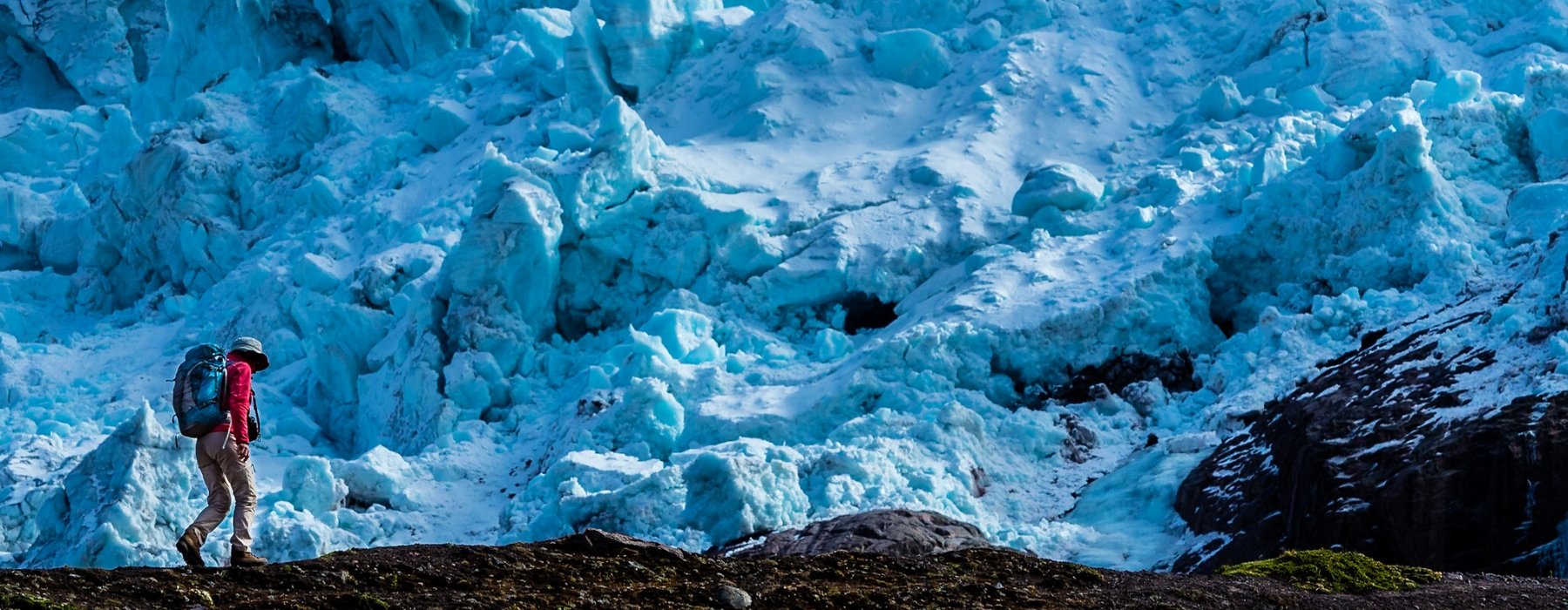
Our style of travel — authentic, thoughtful, and focused on building meaningful connections to the people and places you visit — is inherently respectful and considerate of the destinations we love. We design each aspect of your trip exactly as you want it, which includes its sustainability. That might mean choosing a train journey instead of a flight, staying at eco-friendly wildlife lodges, or opting for experiences that give back to the communities you’re visiting. The choice is yours.
Responsible travel has always been at the heart of what we do. First and foremost, because it gives you the best experience, but, also because it helps to preserve the communities and landscapes you visit. This isn’t new for us we collaborated with local communities and outside experts so we can grow to be better ambassadors.
The most authentic and interesting experiences often directly benefit the local people. We prefer to buy local products that are produced in the organic farms of the Sacred Valley, we also have alliances with local artisan organizations who provide us with souvenir items for our clients, your money directly benefits the local economy.
Our style of travel — authentic, thoughtful, and focused on building meaningful connections to the people and places you visit — is inherently respectful and considerate of the destinations we love. We design each aspect of your trip exactly as you want it, which includes its sustainability. That might mean choosing a train journey instead of a flight, staying at eco-friendly wildlife lodges, or opting for experiences that give back to the communities you’re visiting. The choice is yours.
Responsible travel has always been at the heart of what we do. First and foremost, because it gives you the best experience, but, also because it helps to preserve the communities and landscapes you visit. This isn’t new for us we collaborated with local communities and outside experts so we can grow to be better ambassadors.
The most authentic and interesting experiences often directly benefit the local people. We prefer to buy local products that are produced in the organic farms of the Sacred Valley, we also have alliances with local artisan organizations who provide us with souvenir items for our clients, your money directly benefits the local economy.
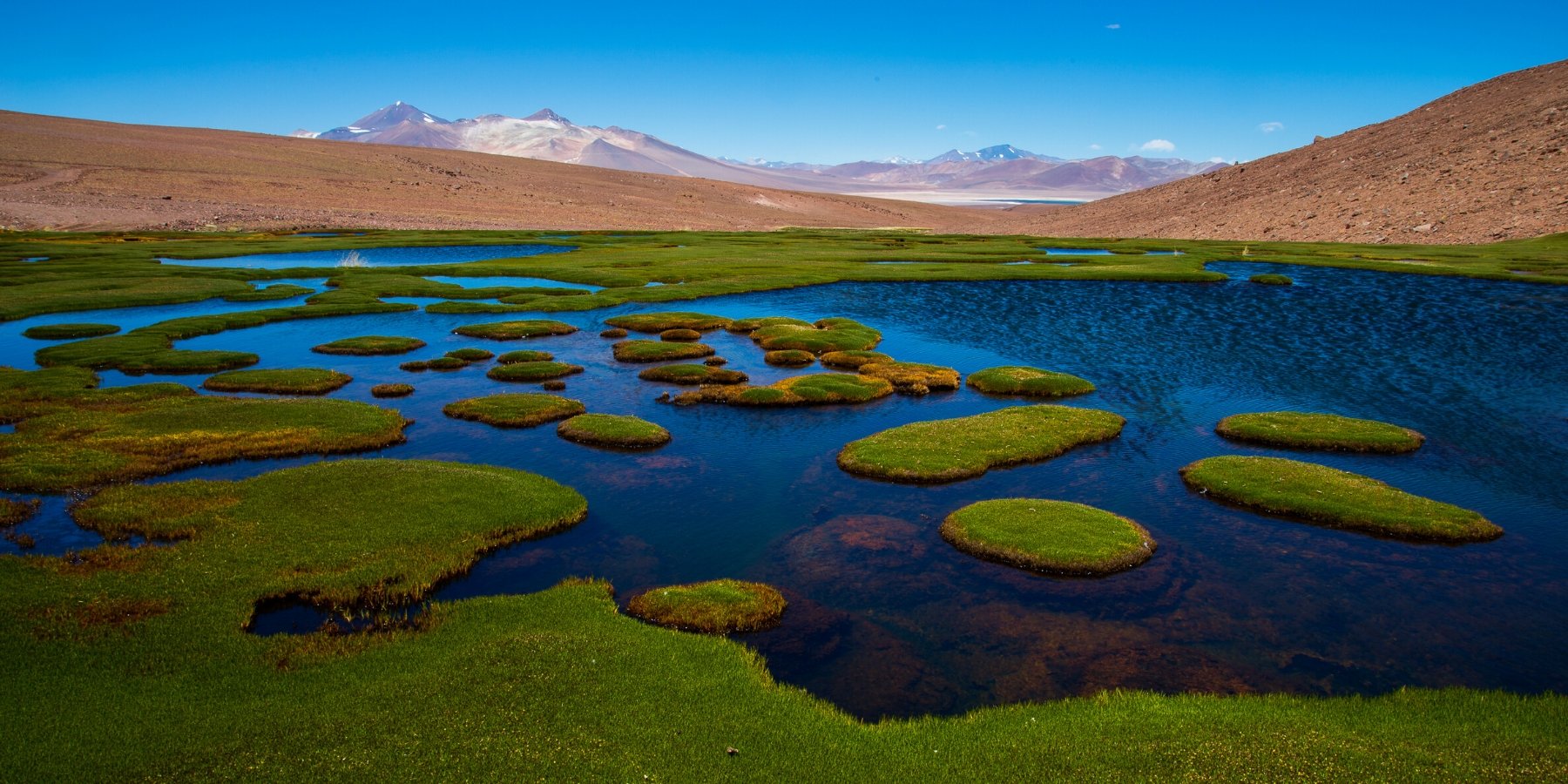
‘There’s a saying: we don’t inherit the Earth from our ancestors, we borrow it from our children. When we show you our country, this philosophy guides everything we do. It’s our responsibility to preserve the environment and wildlife, and support communities. That means using slower modes of transport, like cycling, employing local people, and working with communities who’ll benefit directly from your visit. This also gives you the best, most authentic impression of the places we want to share with you.
We prefer to buy local products in ecological bags, to avoid the use of plastic bags, likewise we teach the use of soaps and ecological products in each tour that we organize. We also work on reforestation projects with local communities who take care of landscape resources such as communal reserves, national parks.
‘There’s a saying: we don’t inherit the Earth from our ancestors, we borrow it from our children. When we show you our country, this philosophy guides everything we do. It’s our responsibility to preserve the environment and wildlife, and support communities. That means using slower modes of transport, like cycling, employing local people, and working with communities who’ll benefit directly from your visit. This also gives you the best, most authentic impression of the places we want to share with you.
We prefer to buy local products in ecological bags, to avoid the use of plastic bags, likewise we teach the use of soaps and ecological products in each tour that we organize. We also work on reforestation projects with local communities who take care of landscape resources such as communal reserves, national parks.
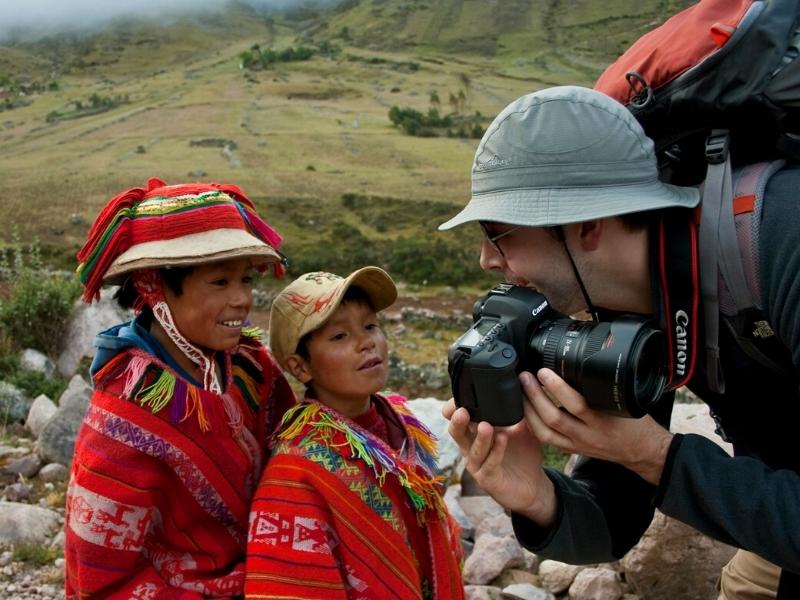
The Lares Trek combines high Andean trekking with a chance for genuine interaction with the most isolated indigenous communities which keep the inca culture alive. Majestic glaciers, amazing glacial lakes, waterfalls, llamas, and alpacas.
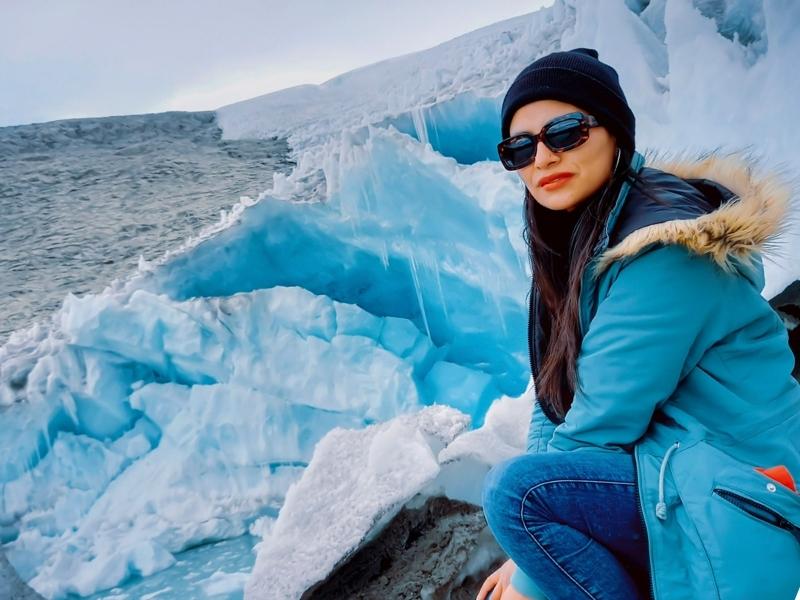
Explore the impressive red valley and Vinicunca Mountain of Colors. Visit the largest tropical glacier in the world Quelccaya next to the beautiful blue Sibinacocha Lagoon, surrounded by snowy peaks and plains inhabited by llama herders.
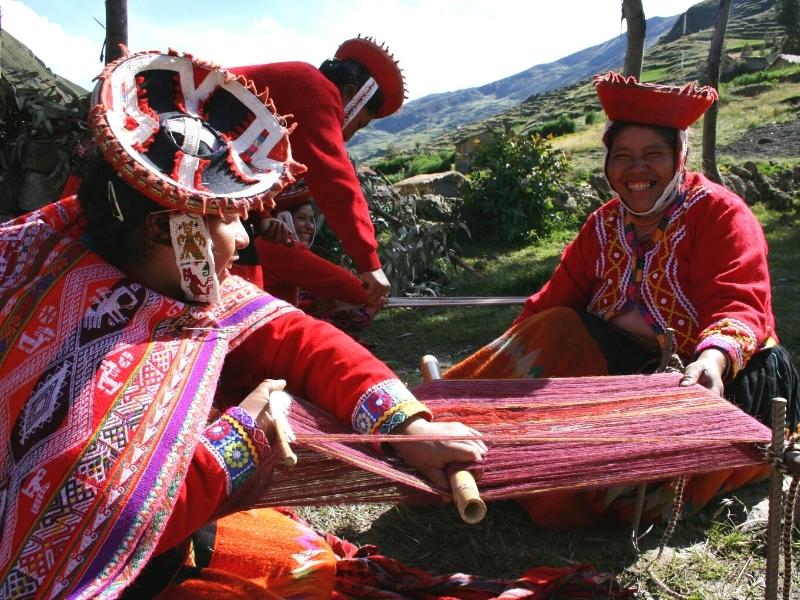
Explore the Lares Trek to Machu Picchu, this trip takes you to the heart of the Andes where few tourist have ventured, you will enjoy the Andean traditions and original indigenous villages, who are still keeping the incas traditions, imposing glaciers, green lakes, waterfalls, llamas and alpacas.